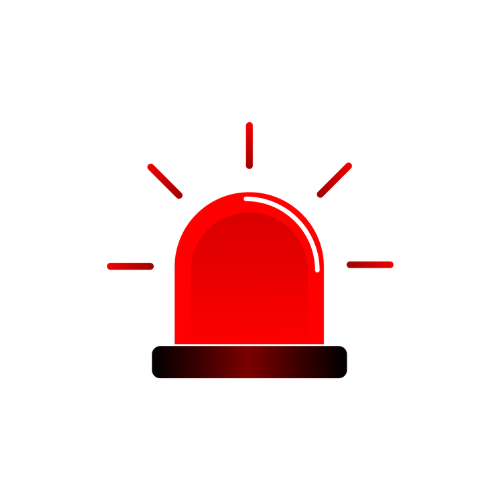Panic attacks can be a frightening and overwhelming experience at any time, but when they occur at night, they can be particularly distressing. Waking up in the middle of the night with a racing heart, shortness of breath, and intense fear can leave you feeling vulnerable and anxious about going back to sleep. In this blog post, we’ll explore the causes of nocturnal panic attacks and offer strategies for managing and preventing them.
What Are Nocturnal Panic Attacks?
Nocturnal panic attacks are panic attacks that occur while you are sleeping, often waking you up suddenly. These attacks have the same symptoms as daytime panic attacks, including:
- Rapid heartbeat
- Sweating
- Trembling or shaking
- Shortness of breath
- Chest pain
- Nausea or abdominal distress
- Dizziness or lightheadedness
- Chills or hot flashes
- Feelings of unreality or detachment
- Fear of losing control or dying
Unlike nightmares, nocturnal panic attacks occur during non-REM (Rapid Eye Movement) sleep and are not triggered by dreams. They can leave you feeling anxious and exhausted, making it difficult to return to sleep.
Causes of Nocturnal Panic Attacks
Several factors can contribute to the occurrence of panic attacks at night:
1. Stress and Anxiety
High levels of stress and anxiety during the day can carry over into your nighttime hours, leading to panic attacks while you sleep. Worries and unresolved issues can manifest as panic during the quiet, dark hours of the night.
2. Sleep Apnea
Sleep apnea, a condition where breathing repeatedly stops and starts during sleep, can trigger panic attacks. The sudden lack of oxygen can cause the body to react with panic-like symptoms, waking you up abruptly.
3. Acid Reflux
Gastroesophageal reflux disease (GERD) can cause discomfort and chest pain, which may be mistaken for heart attack symptoms and lead to panic attacks.
4. Hormonal Changes
Fluctuations in hormone levels, especially during menopause or menstruation, can contribute to anxiety and panic attacks at night.
5. Substance Use
Consumption of caffeine, alcohol, or certain medications before bed can disrupt sleep and trigger panic attacks.
6. Genetics
A family history of panic disorder or anxiety can increase the likelihood of experiencing nocturnal panic attacks.
Strategies for Managing Nocturnal Panic Attacks
If you experience panic attacks at night, there are several strategies you can use to manage and prevent them:
1. Create a Relaxing Bedtime Routine
Establishing a calming bedtime routine can help signal to your body that it’s time to wind down. Consider activities such as:
- Reading a book
- Taking a warm bath
- Practicing gentle yoga or stretching
- Listening to soothing music or a relaxation podcast
2. Practice Good Sleep Hygiene
Good sleep hygiene can improve the quality of your sleep and reduce the likelihood of panic attacks. Tips for better sleep hygiene include:
- Maintaining a consistent sleep schedule by going to bed and waking up at the same time every day.
- Keeping your bedroom cool, dark, and quiet.
- Avoiding screens (phones, tablets, TVs) for at least an hour before bed.
- Limiting caffeine and alcohol consumption, especially in the evening.
3. Deep Breathing and Relaxation Techniques
Practicing deep breathing and relaxation techniques can help calm your mind and body if you wake up with a panic attack. Try the following:
- Deep Breathing: Inhale slowly through your nose for a count of four, hold for four, and exhale through your mouth for a count of four.
- Progressive Muscle Relaxation: Tense and then slowly release each muscle group in your body, starting from your toes and working your way up to your head.
4. Address Underlying Stress and Anxiety
Managing daytime stress and anxiety can help reduce nighttime panic attacks. Consider incorporating stress-reducing activities into your daily routine, such as:
- Exercise
- Mindfulness meditation
- Journaling
- Talking to a therapist or counselor
5. Limit Stimulants and Heavy Meals Before Bed
Avoid consuming caffeine, nicotine, and heavy meals close to bedtime, as they can interfere with sleep and trigger panic attacks.
6. Seek Professional Help
If nocturnal panic attacks persist, seeking professional help is important. A mental health professional can provide therapy, such as Cognitive Behavioral Therapy (CBT), to help you identify and change negative thought patterns and behaviors. Medication may also be prescribed to manage symptoms.
Conclusion
Panic attacks at night can be a distressing experience, but understanding their causes and implementing effective strategies can help you manage and prevent them. By creating a relaxing bedtime routine, practicing good sleep hygiene, addressing underlying stress and anxiety, and seeking professional help when needed, you can reduce the occurrence of nocturnal panic attacks and improve your overall quality of sleep. Remember, you are not alone, and help is available to guide you toward better sleep and well-being.

